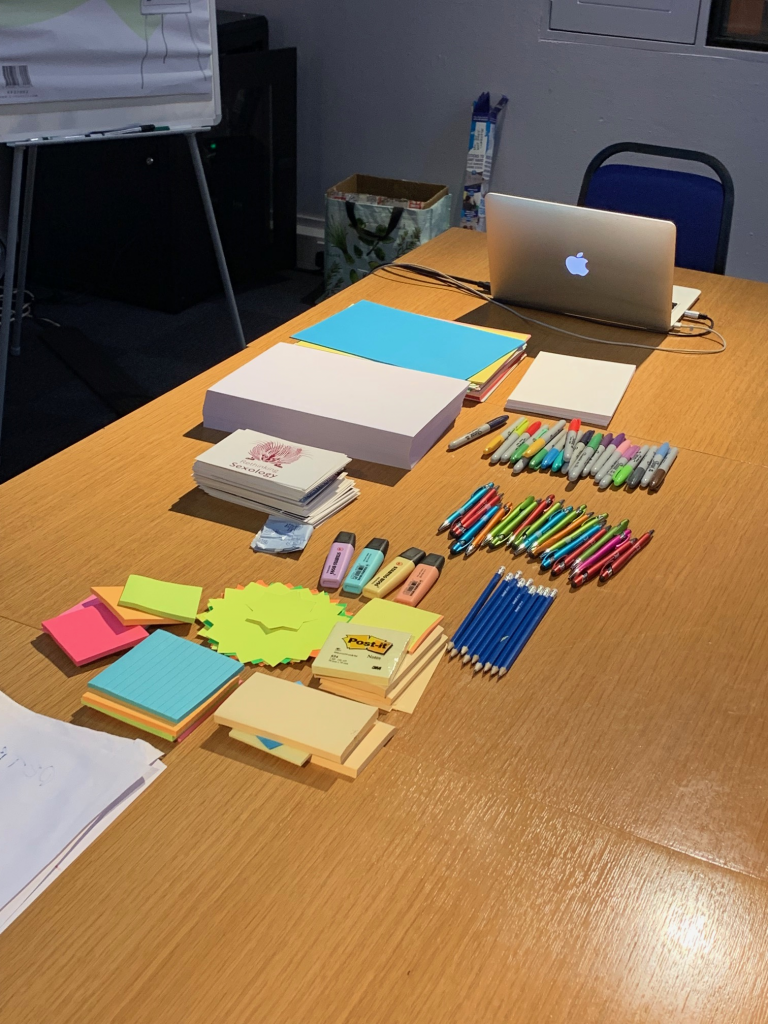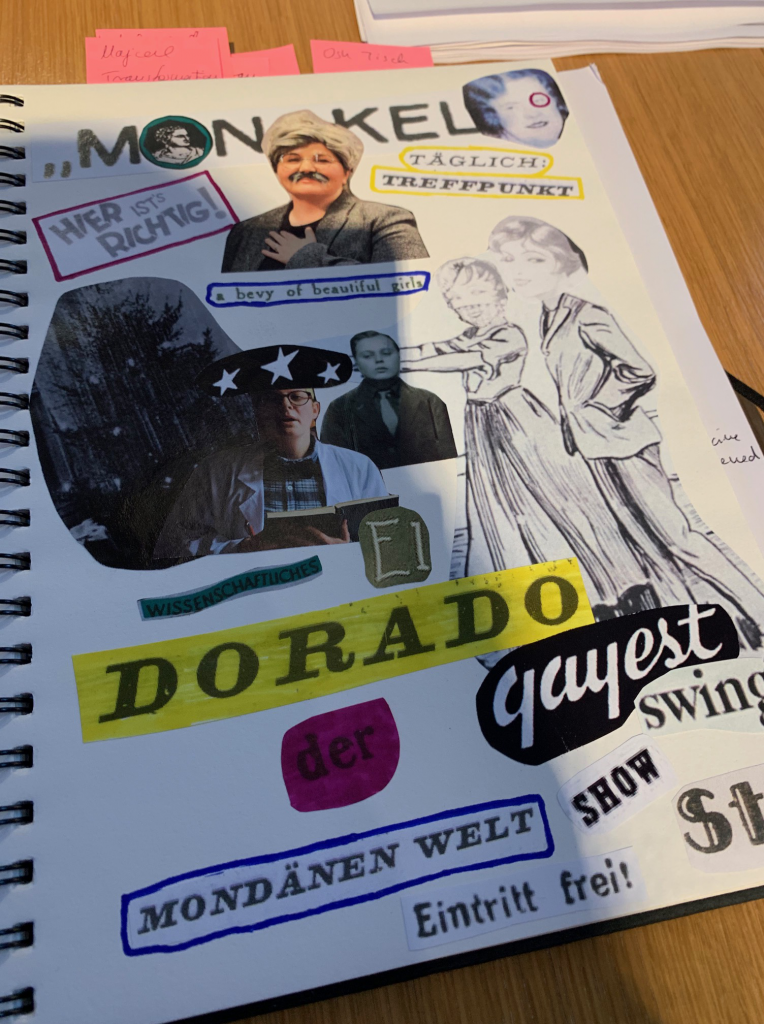
In September 2019, we entered the next phase of the Transformations project with our three-day writers’ room in Bristol. Our goal was to work with a group of young trans and gender diverse people to develop ideas for our performance, which will be written by artist Jason Barker and tour the UK in 2020. The writers’ room was led by Jason with support from writer Faryal Velmi, youth worker Bon O’Hara from Gendered Intelligence, and University of Exeter researcher Dr Jana Funke.

On the first day, we spent time getting to know each other and going through the Gendered Intelligence group agreement, which was introduced by Bon. Jason then used a series of creative exercises to allow everyone to get more comfortable sharing ideas in front of the group. Faryal joined us after lunch to talk about her experiences as a professional tv writer. She explained how she first entered the business and how she made her career. She also gave helpful practical advice about what it means to be part of a writers’ room, how you articulate ideas in front of other people, and how you deal with inevitable experiences of rejection.
Faryal also talked us through ways in which she would develop a story, outlining the important questions we had to ask ourselves and each other about characters, plot, tone, genre and audience. This was incredibly helpful in giving us a sense of what lay ahead and structuring the discussions we would have over the next two days.
After Faryal’s brilliant session, Jason gave the group some creative prompts as ‘homework’ to think about before the next day. Building on the History Workshops we had run in March, Jana briefly introduced German-Jewish sexologist Magnus Hirschfeld, whose Institute of Sexology in Berlin was raided and destroyed by the Nazis in 1933.
70 years later, a suitcase with some materials from his Institute and his death mask was found in a dumpster in Canada. This inspired thinking about the often violent losses that are part of trans and queer history, which is a theme we would pick up on over the next two days when discussing the content and purpose of the historically inspired performance.

Days two and three were dedicated to discussing the overall framing of the performance and beginning to develop the characters and plot. Building on the story of Hirschfeld’s suitcase, we discussed how trans history needed to be represented on stage.
What are some of the potential challenges we have to confront? Who is the audience and what does the performance need to communicate to whom? What tone seems appropriate? To what extent is it possible to manage the audience’s reactions? What would be the ideal venues for the performance?
We then spent time developing initial ideas for the characters in the performance. We do not want to give away too much at this point, but we once again drew on some of the historical sources and figures we had first encountered during the Historical Workshops in March.
Jason also handed out extracts from the Oral History Workshops that had taken place in the summer to flesh out further ideas for the characters. On the final day of our writer’s room, we began discussing the plot and the individual and collective journeys these characters would go on.
What did each character need to learn and what were the dynamics between the different characters? How would the performance begin and end? And, most importantly, how do we want the audience to feel when the curtain falls at the very end of the performance?

The three days were intense, and Jason did a brilliant job working with the young people, Bon and Jana to generate a lot of amazing ideas and insights. At the end, we were all curious to find out what would happen next and enthusiastic to embark on the future stages of our project. Keep following our website and social media accounts to be part of our journey and don’t miss the final performance in Summer 2020!
